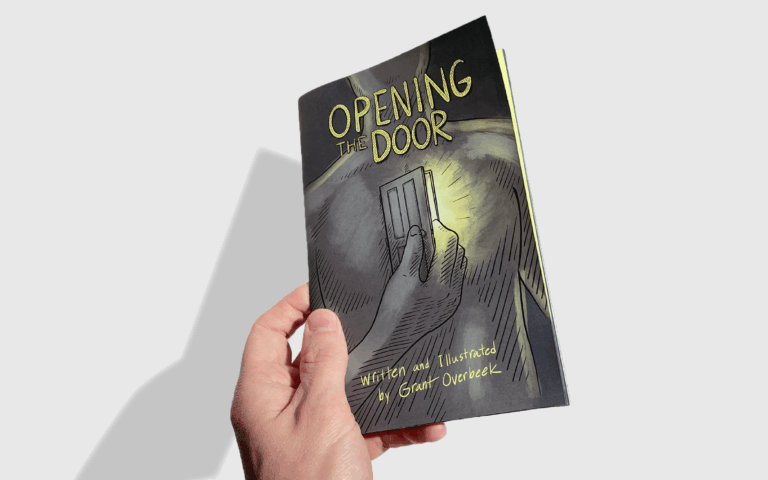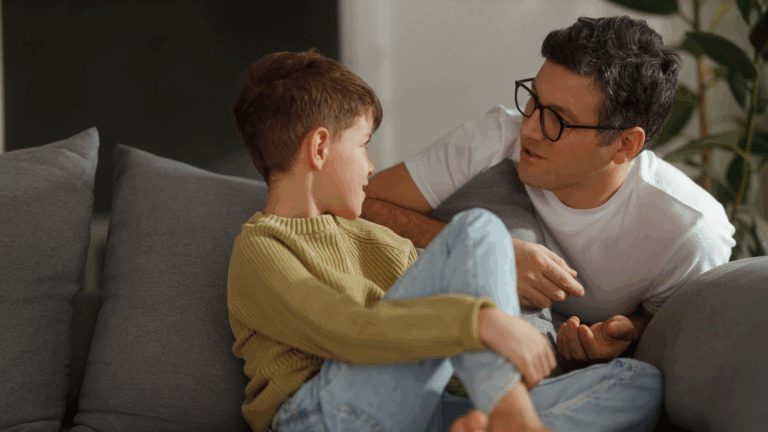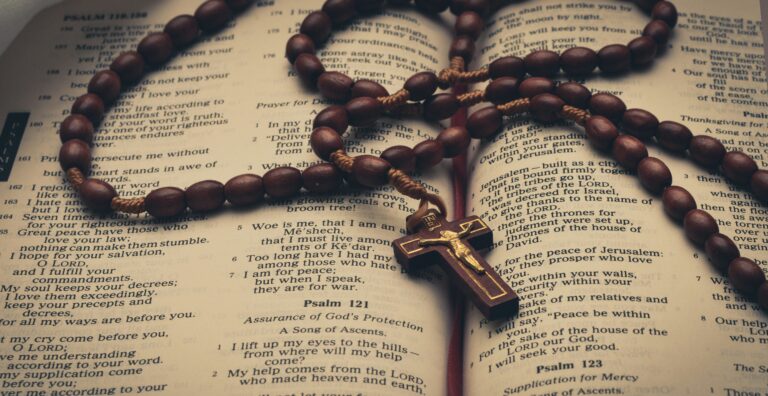During the month of June, gay people across the world gather together, seeking a space to be fully known and fully loved, in contrast to discrimination and violence many gay people have experienced. In that spirit, we’ve asked a gay Christian who is committed to historic sexual ethic to share his story for the first time. Samuel (name changed) urges parents and pastors to speak up so that gay teens have space to share their stories.
Silence can be loud. It can speak loudly to fears and surround a person with deafening isolation. The loud silence in my life surrounded the topic of a “non-heterosexual” person simultaneously being an authentic Christian. In the moments when I yearned for an empathic and compassionate voice to help me reconcile my Christian faith and same-sex attractions, all I received was silence. My church and family were silent when I most needed them to speak, which only made loving God and remaining in Christian community more and more challenging the older I became. By God’s grace, the silence finally broke when I was in college. I found a supportive community outside of local churches, I found the courage to acknowledge my experience, and I found God’s love anew. Some aren’t as fortunate. Pastors and parents must speak up for the sake of gay people, or the results will be catastrophic.
Good Christian boy, silent church
I grew up in a Christian home and attended a conservative Christian church every week. I was zealous in my faith from a young age and eager to obey God as best I could. My parents fondly recount me frequently singing around the house as a child, “Good morning God, this is your day, I am your child, show me your way.” My faith was important to me, and my love for God was sincere.
At the same time, while all my guy friends were gushing over girls, describing their experience of feeling flustered, nervous, and infatuated around them, I quickly came to see that I only had those types of experiences around other males. But all I had ever heard in my Christian communities about sexual minorities were narratives of disgust, shame, demonization, and condemnation. I clearly remember hearing these statements in my Christian communities:
“I could never be friends with a gay person.”
“The Bible is clear about homosexuals; they’re doomed to hell.”
“Homosexual people can come to church, but they will first need to choose to be straight. They can’t choose to be both homosexual and a Christian.”
“Being gay is just so unnatural and gross; clearly, there must be something wrong with those people.”
Every time the topic of “the homosexuals” came up, I hung on every word, yearning to hear some message that might indicate inclusion, or grace, or love and acceptance, or hope for the queer individual. But instead I heard this:
“It is a sin to be gay. If someone is gay they are especially impure and despised by God.”
“Being gay is a problem. Being attracted to the same sex is a choice and an act of rebellion against God.”
“A person cannot love and serve Jesus while also being gay because that is completely impossible.”
So I anxiously avoided acknowledging my same-sex attraction. I told myself, “I’m straight, I’m straight, I’m straight,” and, “This will change; you’re not gay, this is just a phase.” One night while my family watched TV together, a commercial came on for a documentary about the LGBT+ community. To my terror, I realized the commercial was describing my experience. Their stories exposed my reality: I was queer***.
Rather than being comforted that I wasn’t alone in the world, I was viscerally aware that I was alone in my family and church. As far as they were concerned, queer Christian people like me didn’t exist. So I put on a smile and acted like everything was fine. Yet inside, a voice of shame grew louder in the silence: No one can know. You can NEVER speak of this.
Journeying alone and ashamed
An immense amount of distress followed that drove me to frantically minimize, hide, deny, and distort my experience of same-sex attraction. I was afraid that if I ever acknowledged I was gay, I would lose God’s love. This isolation gave the Enemy territory to speak lies of shame, blame, and condemnation over me. I can’t really be a Christian and continue to experience same-sex attraction. What is wrong with me? Have I done something to deserve this? Am I condemned to hell? Is there anything I can do to make it stop?
Plus, I was afraid that my church and loved ones would reject me as evil, bad, and disgusting if I came out. The people I loved and respected in my church and family (who knew nothing of my experience) would frequently say things like “those gays” which was always in direct contrast to “us Christians.” They, thinking they were safely and privately talking about a distant group, were actually speaking about me. They would demonize me, ostracize me, and condemn me without knowing it. This led to terrifying questions: These people say they love me, but what if they really knew me? Will there ever be space for me to belong safely or must I always be afraid to be truly known? I distrusted the love people extended me because I knew how they felt about “the gays.” The only solution was to keep hiding, keep denying my experience, keep pretending to be straight—it was worth the cost if it meant I could be loved by my family and by God.
The night of that commercial, and for many other nights thereafter, I cried myself to sleep begging God to make me straight or trying to negotiate a deal with God. Maybe if I obeyed my parents, did well in school, read my Bible more then, maybe then God would make me straight. One thing was certain–I never asked for any of this, and, despite how much I yearned to have people walk alongside me, it seemed the loneliness I experienced was going to have to become something I got used to.
Eventually, I found safe Christian community
I was 20 years old when I told someone for the first time—and he was my professional therapist who was paid to listen to me. This grieves me. The first time I felt comfortable sharing was when I was paying someone to be safe. For fear of shame and condemnation, I isolated from pastors, friends, and teachers for a decade. Shame was my bully, fear was my master, and the longer I chose to remain isolated the more power they seemed to gain. I knew there was more to life than being a slave to fear and shame, so I finally spoke up.
My voice trembled as I anxiously uttered, for the first time ever, “I am same-sex attracted.” I waited to be struck by lightning or for the sky to fall on me, but instead my counselor was calm, empathetic, nonjudgmental, and incredibly kind and receptive. “I can imagine that has been really hard for you. Thank you for sharing that with me. That is really significant and I am honored you invited me in. I am here for you, you’re not alone in this any more.”
I was no longer alone. I no longer had to struggle in silence. I was going to be okay. How I wished I had heard words like these sooner.
Soon after I shared with friends at college. One friend shared that they were bisexual early in our friendship, making it easier to share about my own sexuality later. For the first time, I knew other faithful Christians who experienced same-sex attraction. For the first time in a long time I felt like there was hope.
Unfortunately, most aren’t so fortunate
Let’s be clear: many gay people continue to live in isolation, or open up but are rejected by those they placed their trust in. The LGBTQ community is known to have higher rates of depression, suicide, and anxiety. Some queer people, especially those who grow up in Christian settings, spend years enduring painful loneliness and can only escape it by leaving the Church entirely to find belonging elsewhere, by taking drastic measures to numb the pain or even take it as far as self harm. I am fortunate. God sustained me all those years, but it is vital that pastors and churches know that silence causes destruction. Silence causes harm. Silence enables the Enemy to win more often than not in the “cosmic tug-of-war on souls.”
Pastors and parents, speak up!
Speaking up creates space for sexual minority Christians to share their stories, robbing fear and shame of their power and enabling God’s love to be given and received. Speaking up allows our gospel to genuinely be good news for queer people rather than simply feeling like a ticket to hell (which is what I feared the gospel meant for me for many years). Speaking up saves lives. Here’s two ways, in particular, that pastors, parents, and everyday Christians can speak up for the sake of queer Christians:
First, we as Christians need to stop pretending faithful Christians who experience same-sex attraction do not exist. The Christian worldview gives us a robust explanation of how people can both desire God’s presence and struggle with brokenness. Rather than be surprised, can we come to expect that some people sitting on the pews next to us are LGBT+ and invite them to openly wrestle with the implications of their sexualities without fear of being shamed, blamed, or condemned?
Second, Christians need to abandon the narrative that the “solution” to queerness is straightness. “It’s okay that you are gay, now we just need to make you straight,” or “You are welcome here in our church so long as you ‘keep fighting’ to be straight.’” Mark Yarhouse, a leading Christian psychological researcher on issues related to gender, sexuality, and spirituality said this: “Heterosexuality is not the measure of success for the Christian sexual minority. What matters is Christlikeness, regardless of whether sexual attractions change significantly…what the Christian community can offer the Christian sexual minority is the vision of what it means to be Christlike.” What if God is more concerned with someone’s holiness than He is with whether or not they experience exclusive opposite-sex attraction? What if our churches had the same emphasis?
God is faithful
God has proved Himself kind and faithful as I have continued inviting people outside churches into my story. Through the love of Christ-followers in a context outside of a local church setting, God clearly communicated to me that my queerness by no means precludes or excludes me from His love or His Kingdom. For the first time in my life I was fully known and still loved. This was a balm to my soul. After years of suffocating silence, of frantic hiding, and of hating myself, I was finally coming up for air.
God’s heart, God’s kingdom, and God’s grace have room for sexual minorities. I am not the first, nor will I be the last and the need to speak up is as vital as ever. I know now that God has always been speaking into the silence: “Come to Me, I love you.” While the deafening silence of parents and pastors can make God’s voice difficult to hear, speaking up for the sake of gay Christians can amplify the comforting words of the Father.
Help your church respond compassionately to gay teens like Samuel by hosting a Coming Out & Gay Pride training for your congregation. Contact us at info@qequipyourcommunity.org to learn more.
***The word queer as used in this blog post is an umbrella term for all sexual and gender minorities—people who experience same-sex attraction, experience no sexual attraction, or experience gender identity questions. This word is not meant to communicate anything about the individuals’ sexual ethics, relationship patterns, or gender expression.






